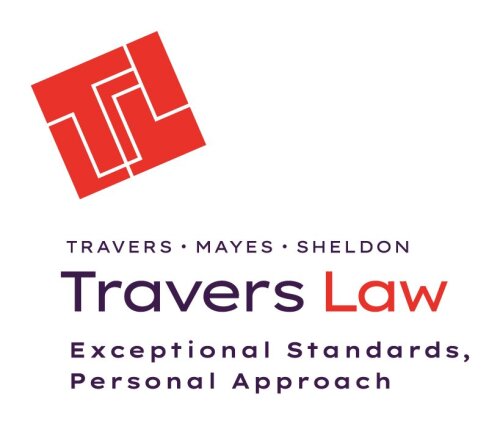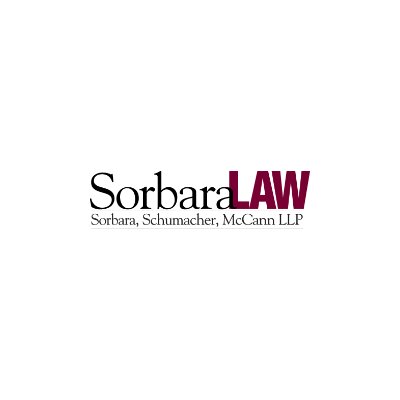Best Ethics and Professional Responsibility Lawyers in Waterloo
Share your needs with us, get contacted by law firms.
Free. Takes 2 min.
List of the best lawyers in Waterloo, Canada
About Ethics and Professional Responsibility Law in Waterloo, Canada
Ethics and Professional Responsibility is a specialized area of law that governs the conduct of professionals-especially lawyers, doctors, accountants, engineers, and others-in their duties towards clients, colleagues, regulatory bodies, and society at large. In Waterloo, Ontario, this area typically involves adherence to established codes of conduct, regulatory standards, and legislation designed to ensure honesty, integrity, competence, and fairness in professional encounters. Violations or alleged breaches of these standards can have serious consequences, including disciplinary action, loss of license, legal penalties, and damage to reputation. The law seeks to protect both the public and the integrity of professions in the local community.
Why You May Need a Lawyer
There are many circumstances in which you might need legal advice or representation regarding Ethics and Professional Responsibility in Waterloo, Canada:
- Facing an investigation: If you are being investigated by a regulatory body for alleged professional misconduct or ethical breaches.
- Disciplinary proceedings: When summoned before a disciplinary tribunal or professional association hearing.
- Drafting or interpreting codes: If you require assistance in establishing or interpreting a code of ethics for your organization or workplace.
- Whistleblower actions: If you are considering reporting unethical or illegal activity within your professional environment and need advice on protections and obligations.
- Professional liability claims: When a client or third party alleges harm resulting from your professional actions or omissions.
- Conflicts of interest: When uncertain whether your circumstances constitute a conflict of interest and what your duties are in such cases.
- Regulatory compliance: To ensure your practice or organization remains compliant with local and provincial professional regulations.
- Reinstatement applications: If you seek to regain a professional license following suspension or termination.
Local Laws Overview
In Waterloo, Ethics and Professional Responsibility are governed by a combination of provincial statutes, federal laws, and self-regulatory body by-laws and codes of conduct. Some fundamental aspects include:
- The Law Society of Ontario (LSO) regulates lawyers and paralegals, enforcing the Rules of Professional Conduct for lawyers and the Paralegal Rules of Conduct.
- Other professions like healthcare professionals, engineers, and accountants each have dedicated regulatory bodies (such as the College of Physicians and Surgeons of Ontario, Professional Engineers Ontario, etc.), each with their own codes of ethics and processes for investigating complaints.
- The Regulated Health Professions Act and similar statutes set out the standards for health-related professions.
- Confidentiality obligations, duties to prevent conflicts of interest, accurate record-keeping, and prohibitions against misrepresentation or fraud are universal across professional disciplines.
- Disciplinary actions and appeals usually include a hearing process, the right to legal representation, and avenues for reviewing decisions.
- Both criminal and civil laws may also apply if the alleged conduct constitutes fraud, breach of trust, or other offenses.
Frequently Asked Questions
What is considered professional misconduct in Waterloo, Canada?
Professional misconduct generally includes violations of a profession’s code of ethics, acting dishonestly, breaching duties of confidentiality, engaging in a conflict of interest, failing to act competently, or behaving in a manner that undermines public trust in the profession. Each regulatory body publishes specific definitions and examples.
Can I represent myself in disciplinary proceedings?
You have the right to self-representation in most disciplinary hearings, but it is highly recommended to seek legal advice due to the complexity and potential consequences of these proceedings.
What should I do if I receive a complaint about my professional conduct?
Respond promptly and professionally. Consult your regulatory body’s guidelines, and strongly consider contacting a lawyer experienced in professional regulation for guidance before submitting any written response.
What are the consequences of breaching ethical or professional obligations?
Consequences may include reprimands, fines, suspension or loss of license, damage to reputation, and, in severe cases, criminal charges or civil liability for any harm caused.
Are confidential communications protected in ethical investigations?
Generally, communications with legal counsel are privileged. However, information related to client files or patient records may be subject to review depending on the profession and the nature of the investigation, in accordance with privacy laws.
How do I file a complaint about unethical behaviour by a professional in Waterloo?
Contact the regulatory body overseeing the relevant profession (e.g., Law Society of Ontario for lawyers). These bodies usually provide complaint forms and detailed instructions online.
What are my rights if I am accused of professional misconduct?
You have the right to be informed of the specific allegations, to see the evidence against you, to have a hearing, to be represented by legal counsel, and to appeal most decisions.
Is there a statute of limitations for professional misconduct?
This varies by profession and regulatory body. Some have time limits for bringing complaints, while others allow investigations of older conduct if deemed necessary for public protection.
Are whistleblowers protected in Ontario?
Yes, there are legal protections to prevent retaliation against those who report unethical or unlawful activities in many regulated professions. It is important to consult with a lawyer to understand specific protections and procedures relevant to your circumstances.
Can ethical standards differ between professions?
Yes. While principles like honesty, integrity, and client welfare are common, each profession establishes its own detailed standards, rules, and processes for enforcement, reflecting the unique risks and expectations of that field.
Additional Resources
The following resources can be helpful for those seeking information or assistance regarding Ethics and Professional Responsibility in Waterloo:
- Law Society of Ontario (LSO): Regulates lawyers and paralegals and provides guidance and complaint processes.
- College of Physicians and Surgeons of Ontario: Oversees doctors and handles disciplinary matters in the medical profession.
- Professional Engineers Ontario: Regulates engineers with resources on compliance and discipline.
- Institute of Chartered Professional Accountants of Ontario: Governs CPAs with a code of conduct and complaint process.
- Ontario Ombudsman: Investigates complaints about regulatory bodies and public sector organizations.
- Local Legal Aid Clinics: May provide assistance or referrals related to professional regulation and ethics issues.
- Waterloo Region Community Legal Services: Offers support and advice to eligible individuals facing professional or ethical complaints.
- Ontario Human Rights Commission: For matters intersecting with discrimination or human rights concerns in professional contexts.
Next Steps
If you believe you require legal advice or are facing an Ethics and Professional Responsibility issue in Waterloo, Canada, consider the following steps:
- Identify the relevant regulatory body for your profession and review their published standards and procedures.
- Document all relevant information including correspondence, timelines, and evidence related to your case or concern.
- Consult a lawyer who specializes in professional regulation and disciplinary law. They can help you understand your rights, advise on the best course of action, and represent you if needed.
- Respond promptly to any official communication while ensuring you do not inadvertently compromise your position-seek legal advice before making formal statements.
- Explore support services, such as your professional association’s wellness programs and community legal clinics if you need additional guidance.
Lawzana helps you find the best lawyers and law firms in Waterloo through a curated and pre-screened list of qualified legal professionals. Our platform offers rankings and detailed profiles of attorneys and law firms, allowing you to compare based on practice areas, including Ethics and Professional Responsibility, experience, and client feedback.
Each profile includes a description of the firm's areas of practice, client reviews, team members and partners, year of establishment, spoken languages, office locations, contact information, social media presence, and any published articles or resources. Most firms on our platform speak English and are experienced in both local and international legal matters.
Get a quote from top-rated law firms in Waterloo, Canada — quickly, securely, and without unnecessary hassle.
Disclaimer:
The information provided on this page is for general informational purposes only and does not constitute legal advice. While we strive to ensure the accuracy and relevance of the content, legal information may change over time, and interpretations of the law can vary. You should always consult with a qualified legal professional for advice specific to your situation.
We disclaim all liability for actions taken or not taken based on the content of this page. If you believe any information is incorrect or outdated, please contact us, and we will review and update it where appropriate.











